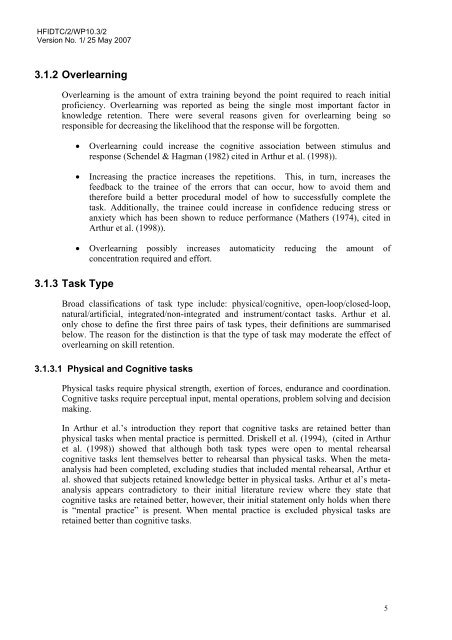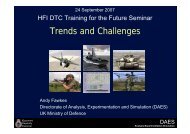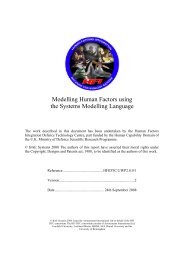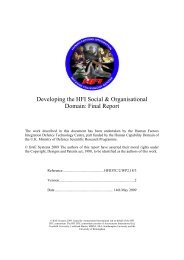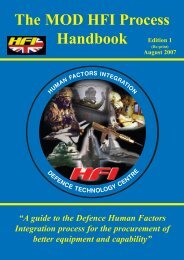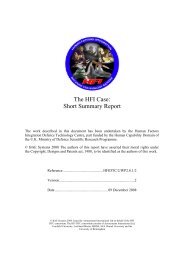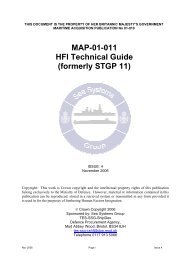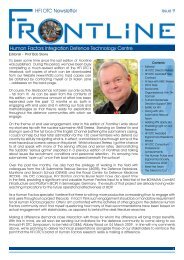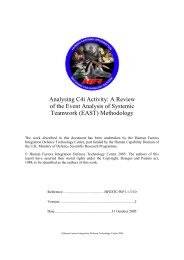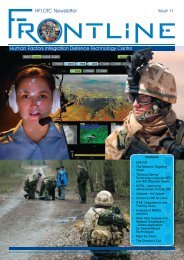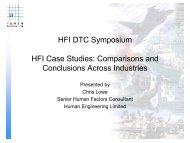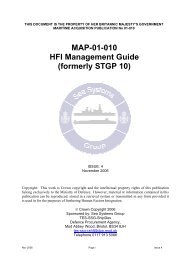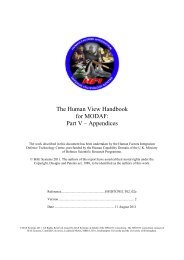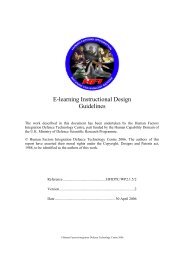Literature Review on Skill Fade - Human Factors Integration ...
Literature Review on Skill Fade - Human Factors Integration ...
Literature Review on Skill Fade - Human Factors Integration ...
Create successful ePaper yourself
Turn your PDF publications into a flip-book with our unique Google optimized e-Paper software.
HFIDTC/2/WP10.3/2<br />
Versi<strong>on</strong> No. 1/ 25 May 2007<br />
3.1.2 Overlearning<br />
Overlearning is the amount of extra training bey<strong>on</strong>d the point required to reach initial<br />
proficiency. Overlearning was reported as being the single most important factor in<br />
knowledge retenti<strong>on</strong>. There were several reas<strong>on</strong>s given for overlearning being so<br />
resp<strong>on</strong>sible for decreasing the likelihood that the resp<strong>on</strong>se will be forgotten.<br />
3.1.3 Task Type<br />
• Overlearning could increase the cognitive associati<strong>on</strong> between stimulus and<br />
resp<strong>on</strong>se (Schendel & Hagman (1982) cited in Arthur et al. (1998)).<br />
• Increasing the practice increases the repetiti<strong>on</strong>s. This, in turn, increases the<br />
feedback to the trainee of the errors that can occur, how to avoid them and<br />
therefore build a better procedural model of how to successfully complete the<br />
task. Additi<strong>on</strong>ally, the trainee could increase in c<strong>on</strong>fidence reducing stress or<br />
anxiety which has been shown to reduce performance (Mathers (1974), cited in<br />
Arthur et al. (1998)).<br />
• Overlearning possibly increases automaticity reducing the amount of<br />
c<strong>on</strong>centrati<strong>on</strong> required and effort.<br />
Broad classificati<strong>on</strong>s of task type include: physical/cognitive, open-loop/closed-loop,<br />
natural/artificial, integrated/n<strong>on</strong>-integrated and instrument/c<strong>on</strong>tact tasks. Arthur et al.<br />
<strong>on</strong>ly chose to define the first three pairs of task types, their definiti<strong>on</strong>s are summarised<br />
below. The reas<strong>on</strong> for the distincti<strong>on</strong> is that the type of task may moderate the effect of<br />
overlearning <strong>on</strong> skill retenti<strong>on</strong>.<br />
3.1.3.1 Physical and Cognitive tasks<br />
Physical tasks require physical strength, exerti<strong>on</strong> of forces, endurance and coordinati<strong>on</strong>.<br />
Cognitive tasks require perceptual input, mental operati<strong>on</strong>s, problem solving and decisi<strong>on</strong><br />
making.<br />
In Arthur et al.’s introducti<strong>on</strong> they report that cognitive tasks are retained better than<br />
physical tasks when mental practice is permitted. Driskell et al. (1994), (cited in Arthur<br />
et al. (1998)) showed that although both task types were open to mental rehearsal<br />
cognitive tasks lent themselves better to rehearsal than physical tasks. When the metaanalysis<br />
had been completed, excluding studies that included mental rehearsal, Arthur et<br />
al. showed that subjects retained knowledge better in physical tasks. Arthur et al’s metaanalysis<br />
appears c<strong>on</strong>tradictory to their initial literature review where they state that<br />
cognitive tasks are retained better, however, their initial statement <strong>on</strong>ly holds when there<br />
is “mental practice” is present. When mental practice is excluded physical tasks are<br />
retained better than cognitive tasks.<br />
5


